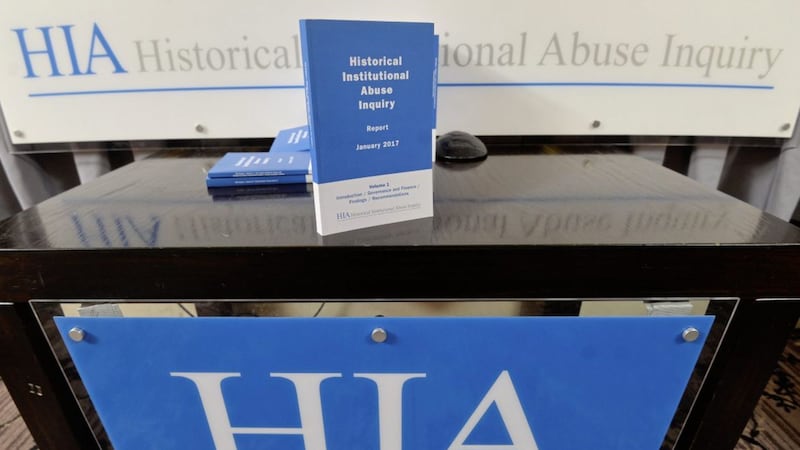SURVIVORS of institutional abuse will begin receiving compensation payments in spring.
David Sterling, the head of the Northern Ireland Civil Service, announced yesterday that victims can begin applying for compensation from the end of March.
A redress board to decide on compensation will sit from the end of April. The first payments are expected a short time later.
The long-awaited compensation will be made more than three years after the Historical Institutional Abuse inquiry recommended financial redress, an apology and care packages for victims abused at children's homes run by religious orders, charities and the state across Northern Ireland.
Mr Sterling, who is retiring at the end of August, met victims and survivors in Belfast yesterday.
"We have made significant progress over the last month in developing arrangements for redress payments and are now ready to engage with victims and survivors on the design of an application form that meets the needs of applicants and provides the information required for the Redress Board to carry out its role effectively," he said.
"We will also be working with victims and survivors to inform what support they may need to help them through the application process."
Victims' groups will today meet High Court judge Mr Justice Adrian Colton, the president of the redress board, to discuss the application process.
The first members of the redress board will be announced next month.
A recruitment competition to appoint a commissioner for survivors of institutional childhood abuse will also be launched in January.
The commissioner's office will have a key role in supporting survivors who wish to apply for compensation.
Brendan McAllister, interim advocate for abuse victims and survivors, said he was pleased Mr Sterling had given victims' groups a "clear timetable".
“We will have a busy start to 2020, and the speed with which the authorities are moving is especially heartening in the run up to Christmas," he said.
Survivors and Victims of Institutional Abuse (Savia), supported by their solicitor Claire McKeegan, of Phoenix Law, were among the groups who met Mr Sterling yesterday.
Margaret McGuckin from Savia said: "We would have preferred something sooner but at least now it has been set in stone."
"I was quite teary. It's been a long battle," she said.
She said the group has recently been contacted by dozens of abuse victims who had never spoken before to seek information about the redress scheme.
Ms McGuckin said victims' groups will be involved in helping to design an application process which is not "adversarial".
She said she will ask Mr Justice Colton today about the finer details of the compensation scheme.
"I will be asking him how swiftly he is rolling this out," she said.
She said psychiatric reports had already been prepared for many survivors and she hoped the reports can be used to expedite the application process.
Marty Adams from Survivors Together said he was pleased by the progress made so far.
"We as victims are glad that the time has come to start winding down our campaign and become a support role for victims," he said.







